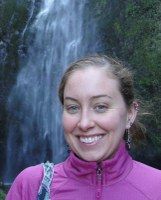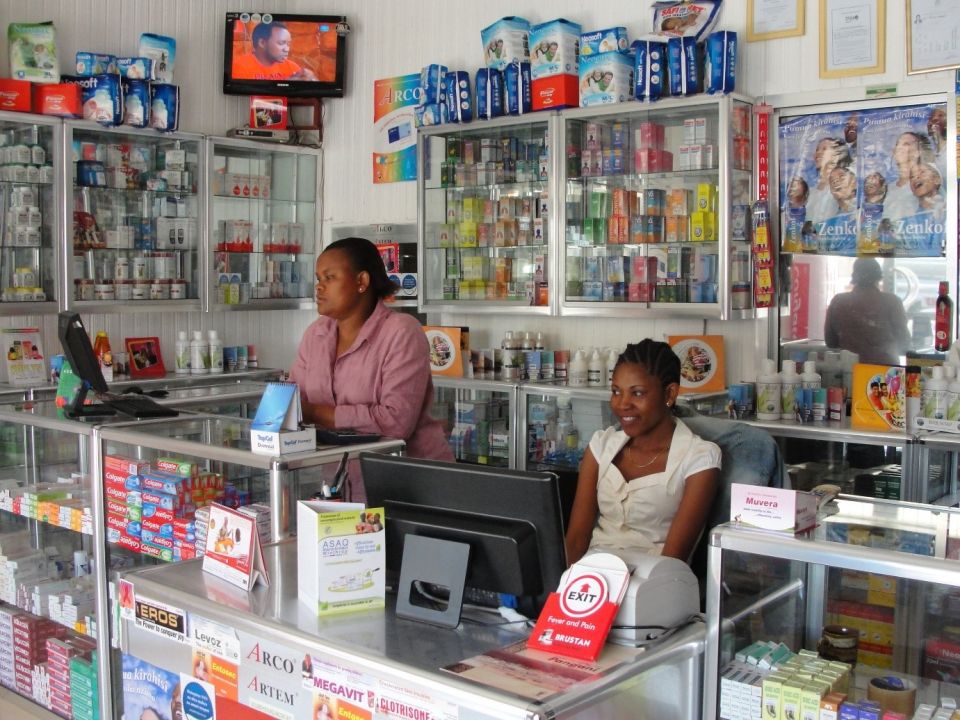
Cite as:
Okune, Angela. 2018. "Laura Meek." In STS in "Africa" Personal Careers. In STS in "Africa" in Formation, created by Angela Okune and Aadita Chaudhury. In STS Across Borders Digital Exhibit, curated by Aalok Khandekar and Kim Fortun. Society for Social Studies of Science. August.
Laura Meek is a Anthropology PhD Candidate at the University of California, Davis. Her dissertation project investigates pharmaceutical use in Tanzania. She frames her interlocutors’ engagement with pharmaceuticals as a form of healing—involving the re/creating of right social relationships—and contrasts this with a biomedical emphasis on curing—which locates the efficacy of medicines in their chemical properties, rather than in the contexts and circumstances of their use. The work that emerges from this research lies at the intersection of medical anthropology, postcolonial studies, and STS, and grapples with how to theoretically render both radical uncertainty and “world making” innovation in Africa today. Additional areas of research interest include counterfeits & other “fakes”; the history of medicine and healing across the Indian Ocean world; methods as theory; bodies, experimentation, and practices of dreaming.
This PECE essay helps to answer the STS Across Borders analytic question: “What people, projects, and products exemplify how this STS formation has developed over time?”
This essay highlights prominant and upcoming individuals working on critical science and technology issues in Africa and is part of a broader exhibit on "STS in Africa."
STS Across Borders is a special exhibit organized by the Society for Social Studies of Science (4S) to showcase how the field of Science and Technology Studies (STS) has developed in different times, places...Read more
LM: "STS (and my home discipline, anthropology) have already established that scientific and medical knowledges and objects, far from being value-free phenomena, are grounded in local cultural conditions. Studies of pharmaceutical globalization often attempt to show how such drugs are reshaped by geographically and historically situated processes. My project advances these theoretical insights by stressing not just the contextualized meanings of medicines, but, also, their contingent, volatile, and potentially dangerous capacities—destabilizing the boundaries between medicine and fake, medicine and poison. In so doing, I hope to build productive theoretical connections between- on the one hand- arguments about the centrality of multiplicity and contradiction in contemporary Africa (Mbembe 2001)- and, on the other hand- STS arguments that there are practices of curing that ‘modern’ medicine has been unable to recognize. These latter works argue that biomedical assumptions that pharmaceutical capacities reside only in their chemical ingredients are maintained by turning bodies into ‘reliable witnesses’ for experiments, and relegating other causes of cures to the realm of the ‘irrational’ (or the placebo effect) (Stengers 2003). Although Africanist scholars and STS philosophers are often operating in extremely different contexts, I am interested in how their respective insights might be mutually productive for un-thinking hegemonic Western ontological assumptions about health and bodies (Chakrabarty 2008, Latour 1993)."
LM: "Much of the STS work on pharmaceuticals in Africa is framed around questions of privatization and medicalization, arguing that biomedical interventions are becoming increasingly pervasive in part because of the ideological support their individualization lends to neoliberal policies and agendas. Research on pharmaceuticals in Tanzania appears to be following these broader theoretical trends, describing unregulated consumption of pharmaceuticals as the “privitisation of poverty” (Green 2000) and biomedical discourse as a type of “medicalization of everyday life”, albeit in the context of a weak state (Obrist 2004). Such frameworks maintain that through the globalization of such medicines (and the biomedical and biopolitical models that they carry with them), people are socialized into mechanisms of control, where the patient becomes positioned as the passive recipient of expert care within a trajectory of cure. This, in turn, increasingly comes to mean the consumption of drugs to normalize self-regulating subjects, thus reinforcing the neoliberal concept of “personal responsibility”. I think that this framework, while certainly valuable and partially correct, may not capture much of what’s at stake when people engage with these substances in their everyday lives. New work on pharmaceuticals in Africa is starting to ask how such biomedical technologies also become reconfigured by other epistemologies, ontologies, ethics, and relations, in ways that may exceed or subvert these neoliberal logics."
Laura Meek (May 12, 2018): " ontological politics & world-making practices" Read more

Source: Laura Meek
LM: "I have been mentored in STS by my professor, Joe Dumit, and also inspired by the works of feminist STS scholars like Karen Barad, Donna Haraway, and Isabelle Stengers. Within STS in/on Africa, I have also found much inspiration in the works of Kristin Peterson, Helen Tilley, Julie Livingston, and Stacey Langwick!"
LM: "After the harm done by structural adjustment policies in Africa (as elsewhere) many anthropological studies have focused on the devastating impacts of market reforms on the lives of people striving to survive in conditions of ongoing poverty and generalized uncertainty. These works describe in nuanced ways how the uncertainties, capriciousness, and unpredictability of contemporary social life characterize much of contemporary experience in Africa, leading people to try to manipulate and control the unseen forces affecting their lives (including God, the state, the market, and the occult) (Comaroff and Comaroff 2004, Jones 2010, Marshall 2009, Mbembe and Roitman 1995, Sanders 2001, Smith 2011). I propose that pharmaceuticals (and other biomedical technologies) can also be fruitfully analyzed through these broader social concerns and that doing so may shed light on the multifaceted production of ill-being and well-being more broadly. If STS is to understand how pharmaceuticals (and other technologies, biomedical and otherwise) are globalized and taken up in uncertain, ambiguous, and poverty-striken local worlds, it needs scholarship written from those zones in collaboration with those actors engaging with its complexities. I consider that as people strive to come to terms with change and uncertain futures in Africa—by attempting to “fix”/stabilize reality—they may also engage in the making and unmaking of worlds, and that this is something particularly important (if not completely unique) about the significance of STS work in/on Africa."
LM: "Damien Droney and I have co-organized two panels on STS and biomedicine in Africa for the upcoming African Studies Association annual meeting (our panels are called Popular Medicine: Reconfiguring Medical Practice in Africa). We are hoping to have productive knowledge exchanges with the other members of our panels and with attendees, and to build a network of scholars working on biomedicine in Africa through an STS framework."